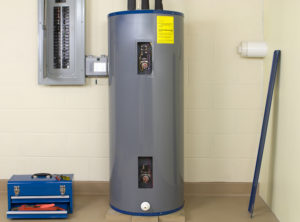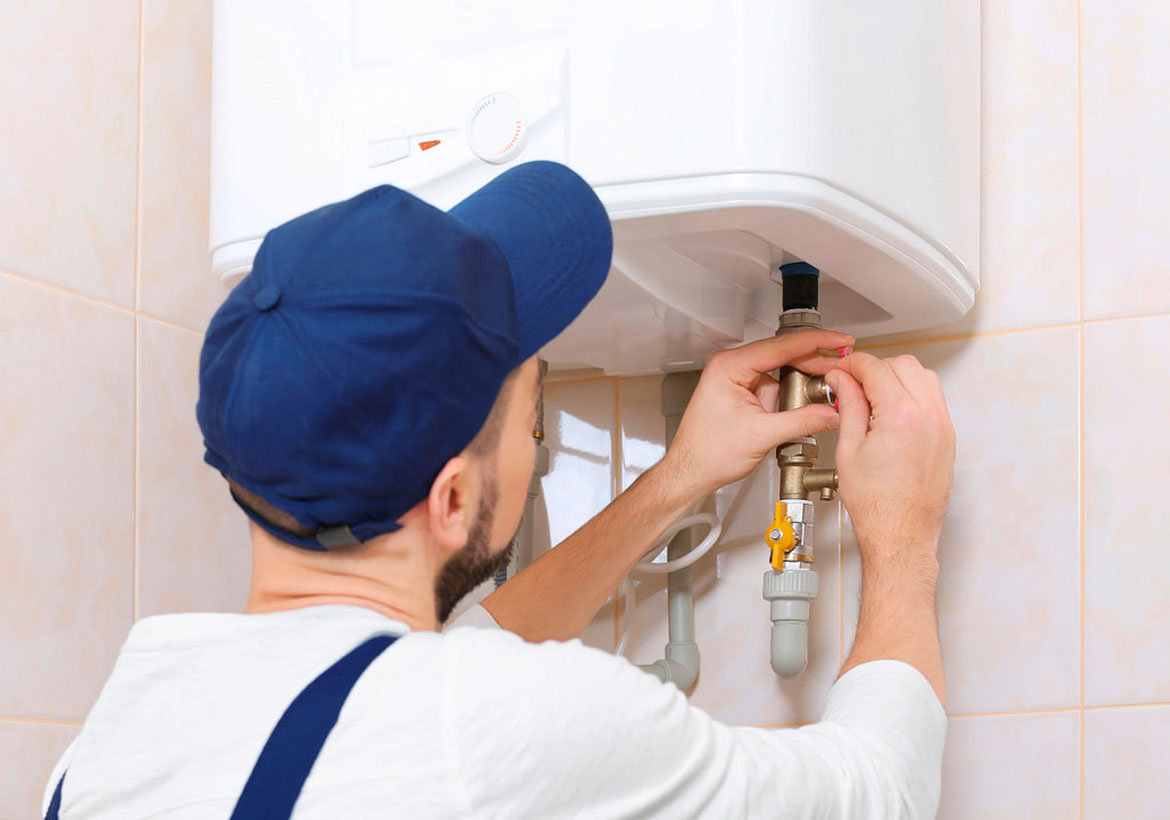Just about everyone is bound to have his or her own perception on the subject of Water Heater Burst.

Whether it lies in the basement or a separate room, damaged water heaters can create stress. A standard device holds 80 gallons, so an overnight leak will certainly cause a flood. This causes significant property damage with soaked wall surfaces as well as floorings. Having no warm water supply is also frustrating. If you are taking care of these issues, make note of the following:
Call the Plumber
After doing the first two safety actions, you should call your plumber to come right away to fix a ruptured water heating unit. There are generally signs that your aging water heating unit has debris build-up in the interior.
Instead, as soon as you identify these signs, have a professional come to check your water heating unit container. Typically, water heating systems have a lifespan of about 8 to 12 years.
Cut Off the Cold Water Supply
Cut off the storage tanks tap water supply from the source. This goes from your main water line right into the storage tank. When your container remains in good condition, the cold water stops filling when the container is full. But considering that it is dripping, the water will certainly continue to stream. Shut the valve located at the top of the heater. Revolve this clockwise to close it off. If you can not discover it or reach it, you have to switch off that primary water system line outside your building.
Shut Off Power Source
Before calling the plumber, closed off a gas water heating unit by turning the temperature dial. This will prevent electrocution, particularly if there is a leak as water is a conductor. Usually, the heating aspect closes off when the water strikes a certain temperature.
Tidy up Residential or commercial property
After calling the plumber, file damage by taking notes and also photos so you can declare your homeowner's insurance policy. Eliminate any standing water to prevent mold and mildew as well as mildew growth. If you have a completely submersible water pump, make use of that to drain pipes the water.
Remember, if you discover any type of issues with your hot water heater, call the pros immediately. You can not take this issue gently since a malfunctioning thermostat can raise water temperature to an alarmingly high degree, leading to unintentional burns. A broken heating system stress safety valve can additionally create a surge. For ideal outcomes, obtain a yearly check so your system gets examined, cleaned up, drained, and refilled, assuring optimum efficiency.
After doing the very first two security steps, you need to call your plumber to come right away to fix a burst water heating system. Rather, as quickly as you detect these indicators, have a professional come to check your water heating system tank. Before calling the plumber, closed off a gas water heating unit by turning the temperature dial. If you have a submersible water pump, use that to drain pipes the water. Keep in mind, if you discover any kind of issues with your water heater, call the pros right away.
Is My Water Heater Broken?
The Water Heater is Old
No appliance will last forever. This includes a home’s water heater. During its lifespan, residents are going to face a situation where a new water heater installation will be necessary. The biggest problem with this is that most people are not sure when their water heater expires. Not knowing this can lead to serious risks if the unit begins to act up due to old age.
Most makes and models of water heaters will last between eight and 10 years. While 10 years is the age when water heater replacement is highly recommended, the need to replace the unit may occur before this time or after. If the unit doesn’t show any symptoms of a problem, it is a good idea to replace it at the 10-year mark (from the manufacture date).
Some of the symptoms that indicate a new unit is needed include rusting, leaks, noises, and a failure to heat up the water. Also, note that not all units have a 10-year life expectancy. The main exception to this rule is that a gas unit will last for six to eight years.
Rusty Heater Inlet Valve or Water
While steel is the strongest material on earth, it does have a weakness – rust. If corrosion occurs on a steel surface, it will begin to spread and eat through the steel in certain areas. On water tanks and pipes that are made of steel, rust is a warning sign of an impending leak.
The issue for many is trying to figure out if the rust is coming from the water heater or the pipes that lead to the faucet. If rust is seen, it is a clear indication that water heater service from the professionals is needed.
If rusty water appears out of the faucets in the bathtub or sink, it likely means a rusty water heater. If there is rust near the water inlet or the pressure relief valve, rust has likely developed inside the tank. If tap water appears rusty, it may be an issue with the pipes.
Strange Sounds from the Water Heater
Are there strange sounds coming from the tank? As a water heater gets older, rumbling noises may develop and get louder and louder as the water in the tank heats up. In homes where large amounts of hot water are used, the issue is likely going to be even more obvious when more serious issues arise. If there is a strange or loud noise coming from the unit, it is probably because of sediment buildup. A good way to remedy this problem is by flushing the heater. If this does not work, then a new unit may need to be installed.
Leaks
As a water heater gets closer to the end of its useful life, there is a higher chance there will be water around the tank. If there is water, this usually means leaks are occurring. Based on where the unit is located in the home, a leak may result in serious property damage.
Leaks are usually caused by expansions in the metal tank. The expansions occur as time passes and as the inside body of the tank is exposed to multiple heating cycles per day. When a fracture forms, the gap will be slight enough to hold the water in; however, in more serious situations, this will not be the case. If the tank is idle, the water will not leak but when the metal expands during each heating system, small amounts of water will get through the gap.

I was introduced to that article on Maintaining & Draining a Water Heater from an acquaintance on another web property. Do you know about another individual who is intrigued by the niche? Take a moment to promote it. Thanks for taking the time to read it.
Stay calm, call!